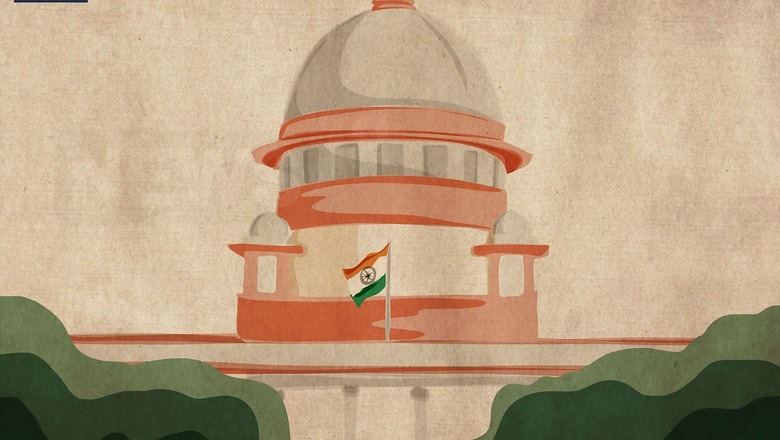
views
New Delhi: In a major setback for the central government, the Supreme Court on Wednesday passed an interim order that said the appointments to tribunals shall be on the basis of existing statutes and not the rules framed under the Finance Act of 2017.
A bench led by Chief Justice, hearing petitions against the passage of the Finance Act of 2017 as a Money Bill, ordered the government to reframe the rules and ordered that until then, the existing laws will govern the tribunals.
The Ministry of law has also been asked to conduct an impact study and submit report to the apex court. The Finance Act had given the Centre the power to govern appointments, removal and service conditions of the members of judicial tribunals like National Green Tribunal, Income Tax Appellate Tribunal, National Company Law Appellate Tribunal.
The five-judge Constitution Bench, also comprising Justices NV Ramana, DY Chandrachud, Deepak Gupta and Sanjiv Khanna, ordered that validity of passage of Finance Act 2017 as Money Bill should be decided by a larger bench.
The petitioners had challenged the Finance Act, 2017, particularly Part XIV on various grounds. The Part XIV had repealed provisions relating to the administration of 26 Tribunals established under diverse central laws. The central government was given the powers to frame rules by virtue of Section 184. While the SC upheld the Section itself, it struck down the rules formulated under it.
The challenge to the Finance Act, 2017, was on the grounds that it was passed as a Money Bill.
Money Bills are those which exclusively contain provisions for imposition of taxes and appropriation of moneys out of the Consolidated Fund of India. The petitioners had argued that the passage of the Finance Act in the form of a Money Bill amounted to a fraud on the Constitution since they can only be introduced in the Lok Sabha. The Rajya Sabha can only recommend amendments.
In the present case, all the suggestions made by the Rajya Sabha regarding the Bill passed in the Lok Sabha were junked, and the Act came into force on April 1, 2017.


















Comments
0 comment